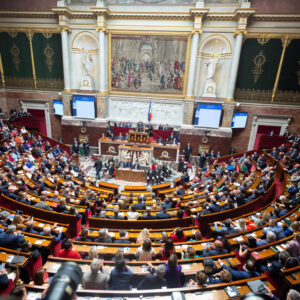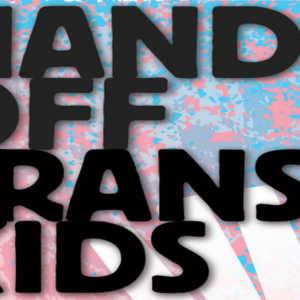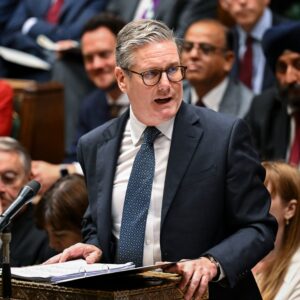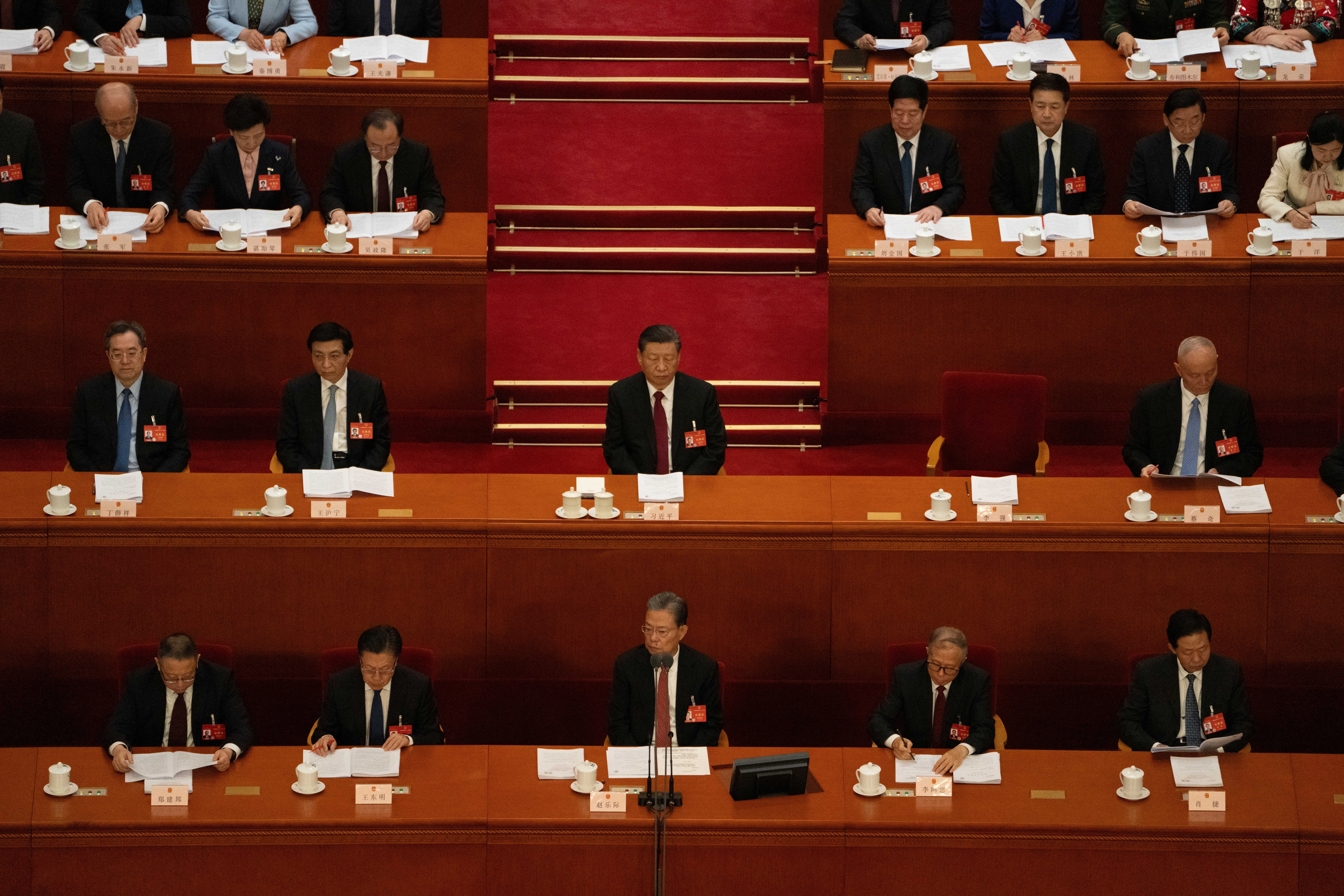Until relatively recently, most books about Che focussed almost exclusively on him as an adventurous travel writer, a romantic revolutionary and an exponent of guerrilla warfare; only occasionally was his work as a government minister in Cuba covered. Thus Sartre’s description of Che as an intellectual may come as a surprise to those whose knowledge of Che is limited to those aspects of his life. Although few think of him as a significant Marxist theorist on economics and philosophy, Che was, in fact, someone who made original contributions to debates over the best methods of economic management for bringing about the transition to socialism.
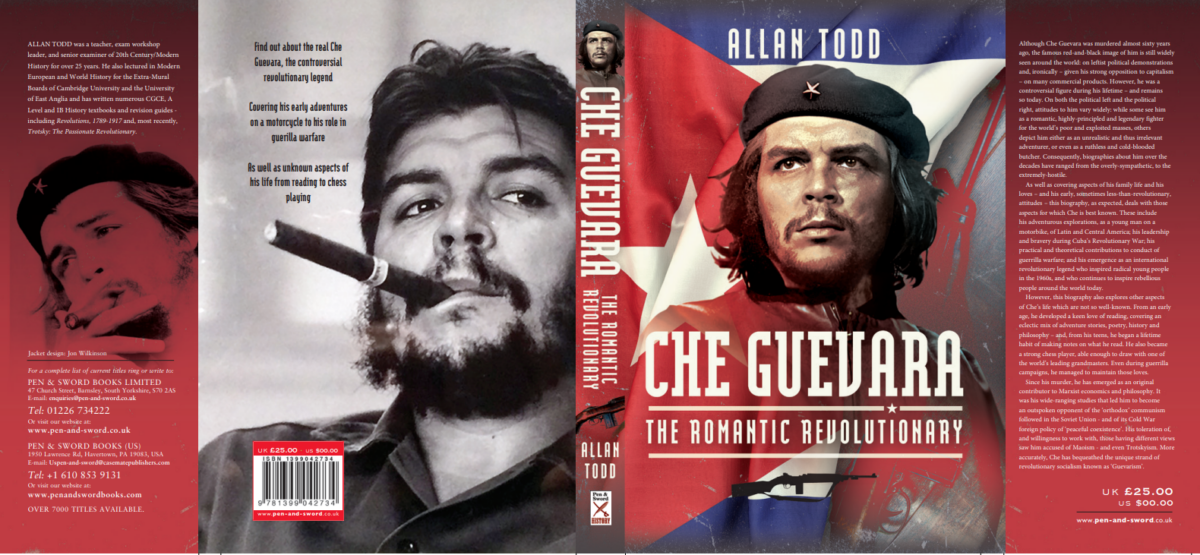
Che’s Marxism
When Che first became a Marxist – which was before Khrushchev’s revelations about Stalin’s crimes – he was happy to be associated with ‘Comrade Stalin’. However, as his reading of the Marxist classics widened and deepened, he increasingly developed ideas that ran counter to the Soviet Union’s version of ‘orthodox’ Marxism. Most crucially, Che’s theoretical writings arose from his practical involvement in revolutionary struggle and construction – a real combination of Marxist praxis (the unity of theory and practice). Che understood that, while people are to a large extent the product of the conditions of society in which they live, those very conditions can be changed by the conscious actions of people. He saw the transition to socialism, via the revolutionary transformation of productive forces and social relations, as being closely linked to the revolutionary education and self-education of people – hence his emphasis on moral, rather than material, incentives.
During his brief time as a minister, Che wrote many articles and made many speeches which attempted to breathe new life into Marxism, in opposition to the ossified version – almost a ‘sterile state religion’ – upheld by the Communist Party of the Soviet Union and the ‘orthodox’ communists who supported it. This was especially so as regards the problems of the transition to socialism in developing countries. In addition, his arguments for the need to create ‘new’ human beings – far from being ‘romantic’ – were based on Marxism’s recognition that humans are capable of real adaptability. This was why he argued – in the face of ‘orthodox’ communists – that the right production methods would help people develop the new concepts and new ways of thinking vital for creating a revolutionary proletarian class-consciousness, and a qualitatively-different kind of society.
Although ‘orthodox’ Soviet communists criticised Che’s attitude as being too subjective (or ‘voluntarist’), Che’s emphasis on the ‘subjective factor’ in history – as the ‘conscious, purposeful intervention in the objective historical process’ needed to bring about revolution and then the transition to socialism – was ‘a decisive component’ of early Marxism. For Che – as for Marxists such as the Trotskyist revolutionary, Ernest Mandel – this was vital for increasing and developing proletarian class-consciousness; because, to make the transition to socialism, feelings of communality and class solidarity needed to be raised. Thus, for Che, using the correct means and tactics was crucial. Che followed the classical Marxist view that any non-socialist method, even if adopted for ‘“purely practical”’ reasons, would ‘in the long run detract from the socialist goal, instead of bringing it a step closer.’ Essentially, ‘the decisive factor in the transition from capitalism to socialism remains the raising of the class-consciousness of the proletariat,…’ There is ‘an ethical component of Marxism’ which argues that ‘only that which raises proletarian class consciousness and, amongst other things, promotes a deeper understanding by the workers of the fundamental difference between bourgeois and classless society, can advance the class struggle in the long run.’ Che saw this aspect as important as developing an internationalist perspective. [1]
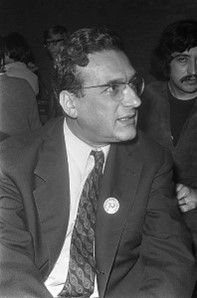
However, some of Che’s views have been criticised by several Marxists. One area concerns the role of workers’ self-management in the transition to a socialist planned economy. Although, in principle, Che favoured this being carried out through Cuba’s trade unions, he actually opposed it whilst a minister as the trade unions tended to be dominated by the Cuban Communists, who had ‘orthodox’ pro-Soviet views. However, he may well have continued to change and develop his views – and it is perhaps worth reflecting that Trotsky, in favour of maintaining party unity, had at first opposed the first anti-Stalinist groups when they appeared. Trotsky, of course, had many more years in which to reflect and amend his views – but Che was murdered at the relatively young age of 39.
Another aspect of Che’s views which has been criticised as ‘un-Marxist’ was his conviction that, by launching armed struggle in Latin America, it would be possible to hasten revolution. Yet Marxism, with its theories of combined and uneven development, had recognised since the Russian Revolution in 1917 that the relative underdevelopment of capitalism in some ‘Third World’ countries during the epoch of imperialism actually made a political revolution more possible there than in more developed countries ‘for the very same reasons which make the construction of a classless society exceedingly difficult.’ For Che, to ignore this was to condemn such countries ‘to remain stuck in barbaric underdevelopment.’ Che was convinced that, for Cuba to develop socialism, it would be necessary to end its isolation in the region. In opposition to the ‘orthodox’ Soviet view, Che argued – as did Mandel – that ‘premature’ revolutions in the periphery could nonetheless act as ‘springboards for the socialist world revolution, which can spread by degrees and stages to the most important industrial countries of the world.’ As later history would prove, the lack of socialist revolutions in the developed world meant that socialist states on the periphery – including the Soviet Union itself – remained ‘arrested and frozen in the transitional period between capitalism and socialism, as a result of the delay of the proletarian world revolution.’ [2]
Che also argued against privileges for the upper layers of bureaucracy and skilled workers, as it created divisions when there needed to be unity, in order to develop the class-consciousness and solidarity necessary for the transition to socialism. Once again, this was in line with classical Marxism, which recognised that in order to bring about such a transition, there would need to be ‘an enduring change in work motivation and the work ethic which, in turn, is inconceivable without…the changing of morals and customs.’ For Che, this was all part of his desire to aid the development – and self-development – of the ‘socialist human being’. As part of that, Che placed great emphasis on international solidarity. Che’s dream went beyond changing economic, social and social structures: he also wanted to transform human consciousness, values and behaviours. In other words – using the patriarchal term that has been used so widely in the past, and was also a reflection of Latin American culture in the twentieth century – to create the ‘New Man.’ For this aim – as well as for his belief that the methods of guerrilla warfare which had triumphed in Cuba could be ‘exported’ anywhere else – he has often been dismissed as a being, rather like his hero Quixote, committed to some romantic idealism or utopianism. But, as Löwy commented: ‘The dream of all great revolutionaries, from Rousseau to Lenin, has been to change not merely “the world” but also “man”:…A revolution is authentic only if it can create this “new man.”’ [3]
Che’s belief that a revolutionary needed to love to be authentic underwrote his concept of the ‘dignity’ due to fellow humans, based on what José Martí had said: ‘“A real man should feel on his own cheek the blow inflicted on any other man’s.”’ More importantly, far from being merely the view of a romantic idealist, it was actually very much in tune with Marxist humanism, which urges revolutionaries: ‘to take a positive attitude toward life and human beings and to love them,…’ Marx himself wrote: ‘“The proletariat…needs its courage, its self-respect, its pride, and its sense of independence even more than its bread.”’ [4]
Che’s Marxism also emphasised the importance of freedom – not the individualistic capitalist idea of each against each in the ‘freedom’ of the market place – but the idea of the rational control of social life by unalienated humans themselves, rather than by capitalism’s ‘blind’ impersonal ‘laws’. At bottom, his Marxism reflected a ‘yearning for a society of free, equal and associated producers’, and his adult life can be seen as being just one example of what Mandel has described as the ‘inextinguishable spark of revolt against inequality, exploitation, injustice and oppression, which lights up again and again in the human race…sometimes only among poets, philosophers and scholars, at other times among great masses of people, according to the tides of history….’ History has shown – by an almost ‘uninterrupted stream of upsurges, rebellions, revolts and revolutions against the exploitation of the poor and the oppression of the powerless’ – that humans have long hungered for equality. [5]
Unrevolutionary beginnings
Yet, before Che became a revolutionary, a famed exponent of guerrilla warfare, and a Marxist theorist – and most unlike the young Trotsky – Che was not interested in politics until his mid-twenties. In his early years, influenced by his parents’ politics, he took the side of the Republicans in the Spanish Civil War, and became involved – in a limited way – in anti-fascist activity during WWII. However, even when some of his friends became involved in protests before and during the Perón years, he stayed neutral. In fact, in some ways, the young Che was a typical product of his family background – and of the conservative and macho culture which predominated in 1950s Argentina, and in Latin America as a whole. Although his parents were relatively impoverished, they both came from wealthy upper-class families – especially his mother – and many of their relations held important posts in Argentina’s military and diplomatic corps. However, Che’s parents – and, again, especially his mother – were also unconventional in many ways, and thus Che frequently played with children from lower social classes, which was unusual for his parents’ background.
Nonetheless, as an older teenager and a young man, Che did share the attitudes of his wealthy, upper-class heterosexual male friends when it came to sexual relations with lower-class women. This was particularly true as regards the young female Indian servants their families employed. These mucamas seemed to have been treated as a readily-available (and readily-exploited?) source for their early sexual experiences. Although some of his biographers have noted various questionable incidents with women in Che’s early years, none seems to have commented on the considerable social and economic disparities between these white upper-class male youths and their young Indian female (and not necessarily heterosexual) servants. Yet, in the twenty-first century, comments about intersectionality issues are surely relevant here, as are debates about the ability to consent. In addition, the young Che’s travel journals indicate that, in common with many Argentinians in the 1950s, he also shared the prevailing racist views and negative attitudes regarding black people and gay men.
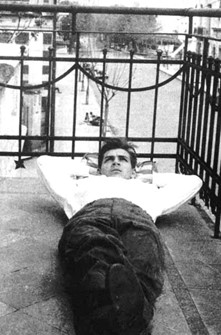
Throughout his life, many women found Che attractive – despite his poor personal hygiene and lack of interest in his appearance! His attractiveness to women would, at times, cause tensions with both his wives. His original travel diaries occasionally seem to have contained explicit comments about his sexual encounters and thoughts. However, as Anderson noted, these diaries were not published until after his death and had almost certainly been ‘cleaned up’ before publication, with ‘some explicit sexual references… [being] ‘expurgated’. On a diplomatic trip to Japan in 1959, Che revealed to his bodyguard that ‘I know what it’s like to putear – I whored round in my youth, too.’ Later, though, as Che matured and became a committed revolutionary, he developed a more austere attitude towards casual sex. Ultimately, Che’s life from his mid-twenties onwards seems to prove the veracity of the saying that ‘travel broadens the mind’ as, both personally and politically, Che’s attitudes and beliefs quickly developed in ways much more in keeping with the world’s idea of the legendary revolutionary know as ‘El Che’. [6]
Of course, Che’s development – both as a man and as a revolutionary – was cut short at 1.10pm on 9 October 1967, when he was murdered in cold blood. The Bolivian army may have ‘only’ killed a man on that day – but, by doing so, they had begun the process whereby that man was soon to be re-born as the legend the world knows as ‘Che’. [7]
——————————————————————————————–
References
[1] Mandel, E., 1978, ‘Why I am a Marxist,’ in Achcar, G., ed., 1999, The Legacy of Ernest Mandel, London, Verso, pp.245-7
[2] Mandel, E., ‘Why I am a Marxist,’ in Achcar, G., ed., The Legacy of Ernest Mandel, pp.248-9
[3] Mandel, E., ‘Why I am a Marxist,’ in Achcar, G., ed.,The Legacy of Ernest Mandel, p.251; Löwy, M., 2007, The Marxism of Che Guevara: Philosophy, Economics, Revolutionary Warfare, Lanham, Rowman & Littlefield, p.17
[4] Mandel, E., ‘Why I am a Marxist,’ in Achcar, G., ed., The Legacy of Ernest Mandel, p.255; Löwy, M., The Marxism of Che Guevara: Philosophy, Economics, Revolutionary Warfare, pp.24-5
[5] Mandel, E., ‘Why I am a Marxist,’ in Achcar, G., ed., The Legacy of Ernest Mandel, pp.252-3
[6] The term, mucama, originated from the time of slavery in nineteenth-century Brazil, and referred to a black - usually young and attractive - female house slave.
[7] Anderson, J. L., 2010, Che Guevara: A Revolutionary Life, London, Bantam Books, pp.70, 412
Art (47) Book Review (102) Books (106) Capitalism (64) China (74) Climate Emergency (97) Conservative Government (90) Conservative Party (45) COVID-19 (43) Economics (36) EcoSocialism (48) Elections (75) Europe (44) Fascism (52) Film (47) Film Review (60) France (66) Gaza (52) Imperialism (95) Israel (103) Italy (42) Keir Starmer (49) Labour Party (108) Long Read (38) Marxism (45) Palestine (133) pandemic (78) Protest (137) Russia (322) Solidarity (123) Statement (44) Trade Unionism (132) Ukraine (324) United States of America (120) War (349)
Latest Articles
- France after the elections: How should the radical left act?In the wake of the National Assembly’s dissolution and new parliamentary configuration, La France Insoumise (LFI) should adopt a clear stance of radical opposition, emphasizing its commitment to anticapitalist principles and democratic reforms while avoiding any compromise with the existing government unless it secures absolute majority support from the populace, argues Gilbert Achcar.
- Why Socialists Oppose the Two‑Child Welfare CapIn this article, Simon Hannah explores why socialists vehemently oppose the government’s two-child welfare cap, arguing that it stems from austerity measures and reactionary views on the poor.
- Hands off Trans KidsA pamphlet from Anti*Capitalist Resistance.
- Two Child Benefit RevoltDave Kellaway responds to the revolt by Labour MPs and others to the Labour government keeping the Tories’ hated two child benefit cap.
- The beginning of the end of China’s rise?This is the second interview in a two-part series. The first interview (“Opposing US militarisation in the Asia-Pacific should not mean remaining silent on China’s emerging imperialism“) covered the nature of China’s state, its status in the world today, and implications for peace and solidarity activism.


